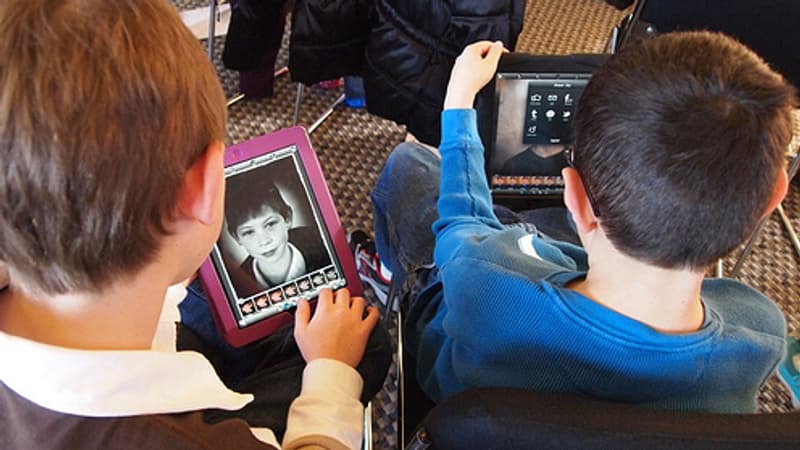The information is not new, but the research continues and is becoming more accurate in the field. A study published August 21 in The Journal of the American Medical Association Pediatrics and discovered by the New York Times shows in particular that there may be a correlation between a child heavily exposed to screens and the risk of developmental delays, especially in terms of communication and motor skills.
The Japanese study conducted with more than 8,000 children shows three things. In the first place, the researchers highlight a “dose-response association”, that is, that a child heavily exposed to screens is likely to suffer developmental delays, according to their observations, although they specify that this exposure is not the only factor.
The study also shows that one-year-olds exposed to screens for more than four hours a day show communication delays at ages 2 and 4. Finally, one-year-olds exposed to a large amount of screen time show delays by age 2 in motor skill development and social interactions. But these delays seemed to dissipate by 4 years.
The importance of social interactions.
The researchers point out that children’s developmental delays aren’t solely due to screen time. In other words: if a correlation is seen, the study does not prove any direct causal link between this exposure and developmental delays.
These difficulties also depend on the interactions between the child and his parents, which is crucial to convey language through facial expressions, tone of voice, but also motor reflexes. Interactions are likely to be less frequent in children who are placed in front of a screen for a long time.
The authors note that the study did not distinguish between time spent watching an educational program and an entertainment program.
The French Academy of Medicine recommends not exposing children to screens before the age of three. But David J. Lewkowicz is very aware that nowadays it is very difficult to moderate the screens and that it is not about banning them completely: “You just have to show moderation. With a strong dose of social interaction in real life,” he says. . He points out.
According to an Ipsos study carried out in January 2023, children spend an average of 1h19 a day in front of a screen during the week and 2h07 on weekends. The National Assembly adopted in early March a series of Measures to protect children from excessive exposure.
Source: BFM TV


